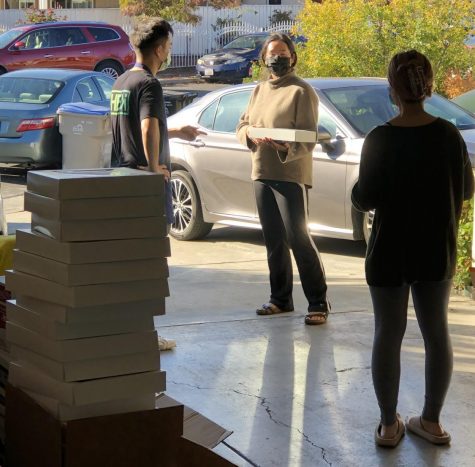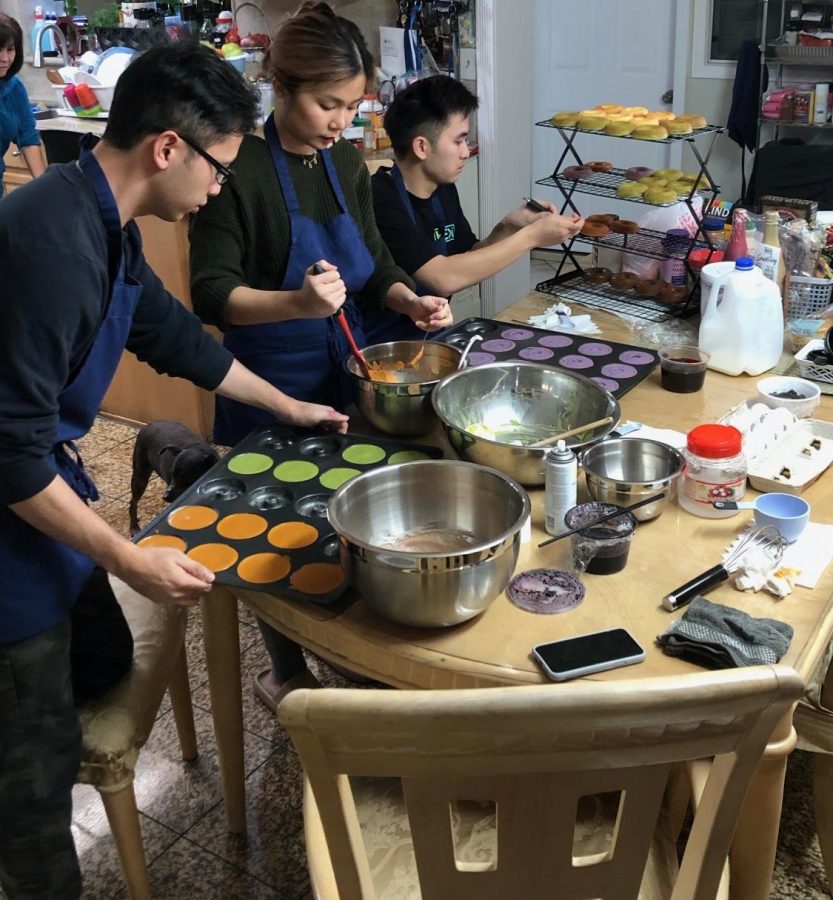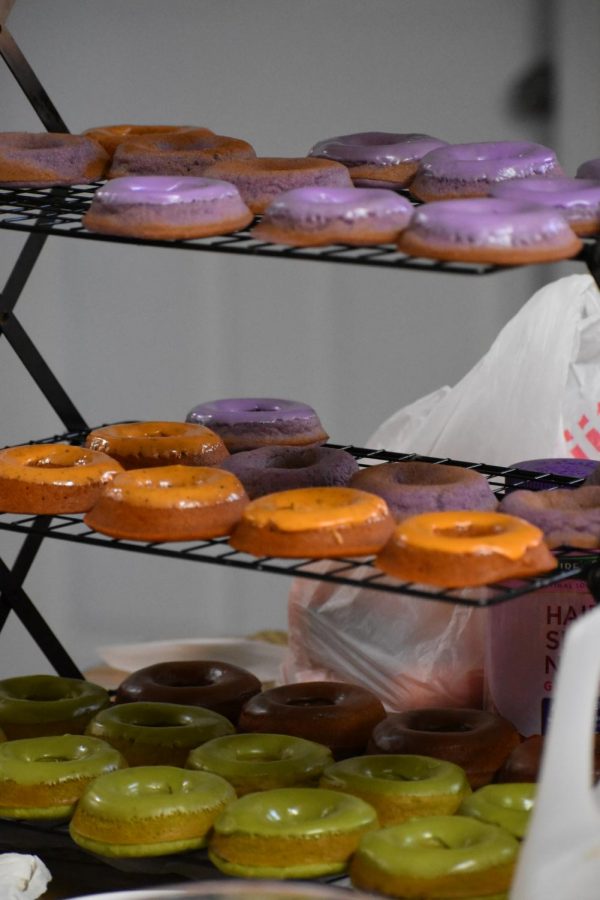Math, marketing and mochi: How Mochata team became bakers and saved their friendship in the process
(From left to right) Tu Tran, Sandra Ho and Brandon Pham prepare Mochata’s signature donuts at their house in San Jose on Nov. 21. They bake and live together.
December 16, 2021
While everyone was learning about sourdough starter at the onset of the pandemic, Erik Pham, who is a highschool math teacher by day, started experimenting with mochiko rice flour for the first time in his home kitchen in Concord.
His mochi donuts started as a new hobby since he had the extra time on his hands from teaching at home. Then, came the family and friends that kept asking for more. By the end of the school year in 2020, Pham’s donuts crossed the threshold of being good enough to sell, and he started baking them in larger quantities to fundraise for his students.
There, the concept of Mochata, the business, was born.
“When we were selling in the beginning, it was really about supporting me as a math teacher,” Pham said. “But what makes our mochi donuts different from the others, is the batter itself.”
What Pham means is that most other mochi vendors, like traditional American donut makers, tend to only flavor their glaze. At Mochata, he decided to double down on the flavor.
“If people don’t want the glaze and just want to enjoy the mochi itself, then they can have that here,” Pham said.
A year since opening up, Mochata now operates in Concord and San Jose where their storefront is not on the corner of any street, but on social media where customers can window shop on Instagram and schedule times for deliveries or pick-ups once they’ve made their purchase.
Only now, it’s not just Pham who is doing the baking. Mochata is now a team of four.
His younger brother Brandon and his two friends Sandra Ho and Tu Tran were finishing up their marketing and graphic design degrees at San Jose State when they started lending the elder Pham some help on his business branding.
From there, the trio decided to enter the family business themselves, which meant that they had to trade in their Adobe InDesign for an apron and learn how to bake professionally.
“It was incredibly difficult at first,” Ho said. “We were baking continuously a couple times a week and we would fail left and right. But we didn’t rush it. We just needed the time to learn from our failures, make the adjustments and even experiment for ourselves.”
The three friends all live and bake together at the younger Pham’s house in San Jose. They said that the experience of starting a business together has brought them closer, usually at a time when college friends can drift apart.
“We have such a special bond that’s hard to find elsewhere, so the thought of us having different jobs and lives was kind of heartbreaking and sad,” Ho said.
The San Jose team have four donut flavors that they consider their staples: Ube, Matcha, Thai-Tea and Chocolate. Although they do routinely add rotating options depending on the season and what inspires them.
When I visited their home on a busy Sunday before Thanksgiving, they were experimenting with a lychee flavored donut — which turned out wonderfully bright and delicious.

As advertised, the flavoring is also mixed into the donut batter which gives each donut a distinct look and taste; whereas the popular fried pon de ring alternative, while delicious in their own right, can all start to meld together when one samples multiple in a box, as one often does.
In Concord, the elder Pham rotates his menu more often and his decorations have a bit more pizazz. This month, he’s cranking out: S’mores, Peppermint Red Velvet, Nutella Cinnamon and Snowy (Coconut) Pandan options.
Both locations price their donuts roughly the same: six for $24 and a dozen for $42. In San Jose, individual donuts are currently being sold at R&B Tea’s two locations for $3.50/piece.

As for what the future holds, the elder Pham said that there is no need for Mochata to rush into its own storefront and that both teams are comfortable baking from home. In fact, he admitted that they prefer it outright, in which one time, the team did a pop-up where they baked in a commercial oven and it did not go well.
“99% of the time, when you start your first storefront business in the food and beverage industry, it’s bound to fail,” Pham said. “So we’re just trying to learn from those who are running their business successfully. It’s usually those that care about their branding and the experience they are creating for customers, even if their products aren’t the best.”
His younger brother tends to agree. He said that when times get tough, he tries to remind the group to focus on the things they do have rather than what they do not.
“My mom used to be on me about getting a conventional nine-to-five job,” said the younger Pham. “But I tell her, look at all this stuff we’re creating. This is still my degree. It’s just applied in a different way.”



























